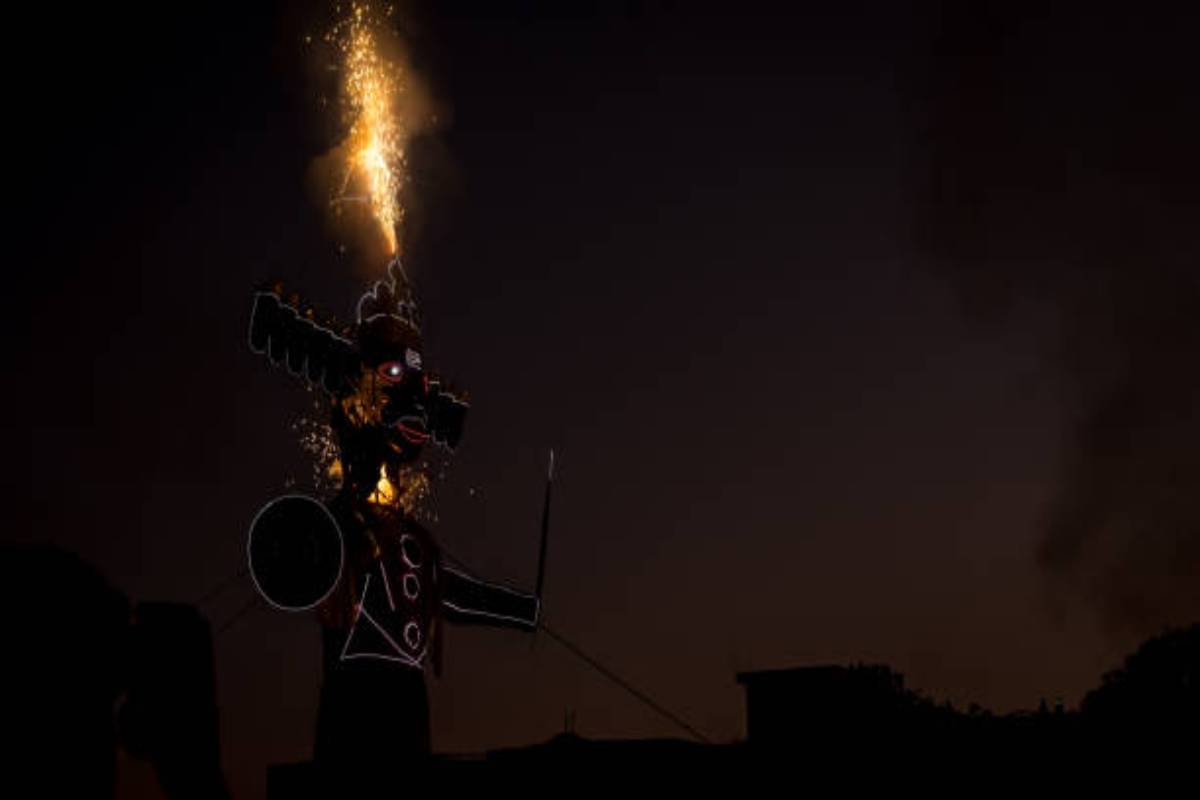J&K CM Omar Abdullah lays stress on Himachal Pradesh-type laws to protect agricultural land
The Chief Minister noted that Himachal Pradesh has adopted a strict policy in this regard and stressed the adoption of a similar policy in J&K.
During the Dussehra festival celebration, effigies of Ravana are burned at many locations around India.

Ravana is not burnt but honoured at these places (Photo : iStock)
Due to Lord Rama’s victory over Ravana, Dussehra is seen as a celebration of the triumph of good over evil. During the Dussehra festival celebration, effigies of Ravana are burned at many locations around India. However, did you know that there are many places in India where the effigy of Ravana is not burned but rather honoured for his wisdom, devotion to Lord Shiva and many more?
Here are a few of them.
The Very Popular International Kullu Dusshera
The Kullu Dusshera of Himachal Pradesh is known for its century-old rituals. Whereas Dussehra is celebrated across the country by setting fire to Ravana, the week-long Kullu Dussehra festival concludes with the sacrifice of a buffalo, a rooster, a lamb, a fish, and a crab.
Advertisement
Himachal Pradesh’s Bajinath in Kangra
The second place also belongs to Himachal Pradesh, Bajinath of Kangra District. Ravana’s devotion to the Lord was admired here, so the locals do not burn any effigy of Ravana. Although Ravana is not worshipped in Baijnath, The inhabitants of the area think that if they destroy the effigy of Ravana, Shiva will be furious.
Advertisement
Mandore, Rajasthan (Jodhpur)
The in-law residence of Ravana is said to be located in Rajasthan. As per mythology Mandodari married Ravana at Mandore. Locals claim that the ceremony happened in Mandore’s Ravan Ki Chanwari. As a result, some local Brahmins, particularly the Maudgils, consider Ravana to be their son-in-law. Dussehra is not observed in this part of India for this reason.
Uttar Pradesh, Bisrakh
Very close to New Delhi, in the little village of Bisrakh, the people take great pride in claiming Ravana as their own. Local legend has it that the son of the sage Vishrava and the daitya princess Kaikeshi, Ravana was born in Bisrakh. People regard Ravana as the “Maha-Brahman.”Throughout the nine days leading up to Dussehra, people in Bisrakh pray for Ravana’s ultimate repose and mourn him.
Madhya Pradesh’s Mandsaur
A lot of people in this city also think highly of Ravana as a learned scholar whose skills far surpassed his cruel disposition. At Mandsaur, a town in the Malwa region of Madhya Pradesh, there is a 35-foot-tall monument to Ravana.
Gadchiroli, Maharashtra’s Paraswadi
A Gond tribal community called Paraswadi has less than 300 inhabitants. In this hamlet, Ravana is revered as a deity. Gond people reject to identify as Hindus and instead refer to themselves as “Ravanwanshis” (Ravana’s descendants). The villagers here think that Ravana was a Gond monarch who was assassinated by “Aryan invaders.” They think that Tulsidas Ramayana is to blame for Ravana appearing malevolent because the Valmiki Ramayana does not portray him as a villain.
Uttar Pradesh’s Kanpur
There is a Shiva temple and a Ravana temple in Kanpur’s Shivala.During Dussehra, the gates of the Dashanan temple are opened for those who pray to Ravana for mental and spiritual cleaning. Instead of being the king of the demons, Ravana was revered by his worshippers as a
deity who possessed unrivalled intellect
Kakinada, Andhra Pradesh, No. 7
The main focus of the Ravana temple in this coastal city is Lord Shiva, who was revered by Ravana. A portion of the temple is decorated with a massive Shivling mural. The temple is said to have been built on a location that Ravana himself picked. Because of this, not everyone in this lovely Andhra town burns the effigy of Ravana.
Madhya Pradesh’s Ravangram, Vidisha
This hamlet, which bears Ravana’s name, has a devoted Ravana worshipper population. On Dussehra, the villagers pray for the tranquility of Ravana’s soul and refrain from burning his effigy. People worship his 10-foot-long statue at a shrine that was allegedly built centuries ago by Kanyakubja Brahmins, the Brahmin sect of which Ravana was a part. Locals claim that rubbing oil on the idol of Ravana’s navel is lucky and appeases him, who passed away after being shot with an arrow in the navel.
Kolar, Karnataka.
Dussehra, also known as Lankeshwar Mahotsav, is a harvest festival held in Kolar, Karnataka. The origins of Kolar’s Ravana worship may be found in a variety of folktales. In Kolar, Lord Shiva is revered, and Ravana was a devoted follower of the Lord. It’s said that’s why people adore Ravana’s devotion so that they don’t burn him. According to popular belief, there is a risk of burning the crop if the effigies are lit on fire. That’s why they refrain from burning.
Advertisement